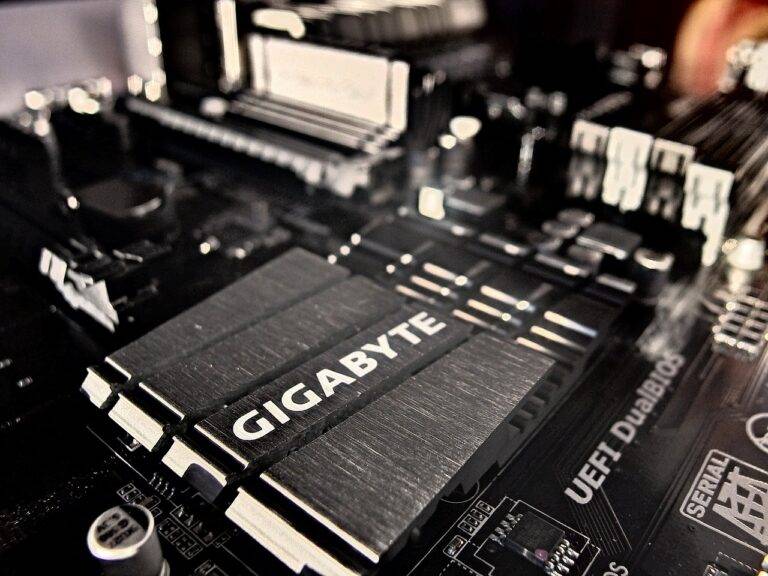The Role of Blockchain in Sustainable Development
Blockchain technology, once primarily associated with cryptocurrencies, has emerged as a powerful tool with the potential to drive sustainable development initiatives across various sectors. Its decentralized and transparent nature offers unique opportunities to address environmental, social, and economic challenges, paving the way for a more sustainable future.
Transparency and Traceability in Supply Chains
One of the key applications of blockchain in sustainable development is enhancing transparency and traceability in supply chains. By recording transactions on a tamper-proof distributed ledger, blockchain enables stakeholders to track the journey of products from their source to the consumer. This level of transparency helps ensure ethical sourcing practices, fair labor conditions, and adherence to environmental regulations, thereby promoting sustainability across industries such as agriculture, fashion, and electronics.
Renewable Energy Trading
Blockchain technology is also revolutionizing the energy sector by enabling peer-to-peer (P2P) energy trading among producers and consumers. Through blockchain-based platforms, individuals and businesses can buy and sell renewable energy directly, bypassing traditional energy utilities. This decentralized approach not only promotes the adoption of renewable energy sources but also facilitates the integration of microgrids and promotes energy resilience in communities.
Carbon Footprint Tracking and Offset
Blockchain’s immutable ledger can be leveraged to track and verify carbon emissions throughout supply chains and industrial processes. By assigning digital tokens or certificates to carbon credits, blockchain enables transparent and auditable carbon footprint tracking. Additionally, blockchain-based platforms facilitate the trading of carbon credits, allowing businesses to offset their emissions by investing in carbon reduction projects or purchasing credits from carbon-neutral entities.
Tokenization of Sustainable Assets
Blockchain technology enables the tokenization of real-world assets, including sustainable infrastructure projects, renewable energy assets, and carbon credits. By digitizing these assets and representing them as tokens on a blockchain network, fractional ownership and trading become more accessible to a broader range of investors. This democratization of investment in sustainable assets can accelerate the transition to a low-carbon economy and drive funding towards projects that promote environmental conservation and social equity.
Smart Contracts for Sustainable Governance
Smart contracts, self-executing agreements coded on a blockchain, offer new possibilities for transparent and automated governance mechanisms. In the context of sustainable development, smart contracts can be used to enforce environmental regulations, manage natural resource usage, and ensure fair distribution of benefits among stakeholders. By automating compliance and governance processes, smart contracts reduce the risk of corruption, increase accountability, and promote sustainable practices.
Decentralized Governance and Collaboration
Blockchain networks operate on a decentralized architecture, enabling distributed decision-making and collaboration among stakeholders. This decentralized governance model fosters greater inclusivity and participation, empowering communities to collectively address sustainability challenges. Decentralized autonomous organizations (DAOs) built on blockchain technology enable community-driven initiatives for environmental conservation, social impact projects, and sustainable development goals.
FAQs
Q: How does blockchain promote sustainable development?
A: Blockchain promotes sustainable development by enhancing transparency and traceability in supply chains, enabling renewable energy trading, facilitating carbon footprint tracking and offset, tokenizing sustainable assets, implementing smart contracts for sustainable governance, and fostering decentralized collaboration and decision-making.
Q: What are the benefits of blockchain in sustainable development?
A: Benefits include increased transparency and accountability, enhanced traceability and trust in supply chains, accelerated adoption of renewable energy, efficient carbon footprint tracking and offset mechanisms, democratized investment in sustainable assets, automated and transparent governance, and decentralized collaboration for collective action on sustainability challenges.
Blockchain technology holds immense promise for driving sustainable development by addressing pressing environmental, social, and economic challenges. By leveraging its unique features, such as transparency, decentralization, and automation, blockchain can empower stakeholders to create positive impact and build a more sustainable future for generations to come.





